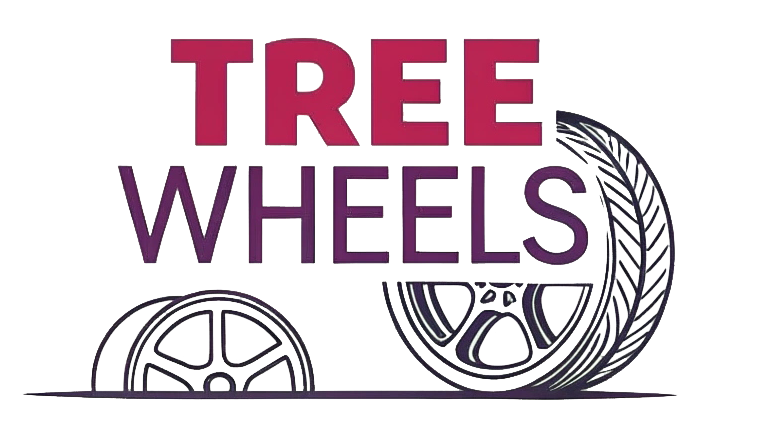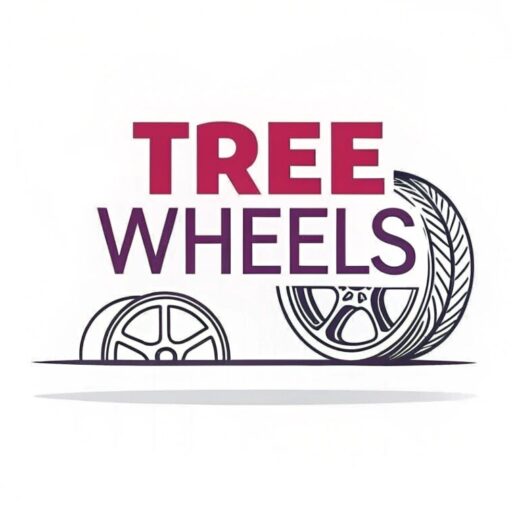When it comes to automotive wheels, many people struggle to distinguish between cast and forged wheels. So, how do you tell the difference? It’s a crucial question, especially for anyone looking to upgrade their vehicle or entering the world of automotive modifications.
To tell the difference between cast and forged wheels, look closely at their construction. Forged wheels are stronger and lighter due to their manufacturing process, which involves compressing solid metal under high pressure. Cast wheels, on the other hand, are made by pouring molten metal into a mold.

The difference between cast and forged wheels is often more than just cosmetic. While many people assume it's all about the price, the truth is that the choice depends on what you need for your vehicle. Cast wheels, being mass-produced, are more affordable, but they are generally heavier and less durable compared to forged wheels. On the other hand, forged wheels are made through a more complex process, leading to stronger, lighter, and often more expensive wheels. But when it comes down to it, the real question is: what are you looking for in your wheels?
How to tell if wheels are forged or cast?
If you're wondering how to tell if wheels are forged or cast, it comes down to a few simple characteristics. Cast wheels often have visible imperfections or bubbles within the structure. You can also check the weight, as forged wheels tend to be lighter despite their strength.

The difference between forged and cast wheels lies in the manufacturing process. Cast wheels are made by pouring molten metal into molds, while forged wheels are created by shaping a solid billet of metal under extreme pressure. This process makes forged wheels much stronger and lighter. If you notice that a wheel feels unusually light for its size, it's likely forged. Cast wheels, in contrast, can feel denser due to their thicker structure.
Factors to consider when determining wheel type
When you’re trying to distinguish between cast and forged wheels, a few other factors come into play:
- Cost – Forged wheels are more expensive due to their production process, which involves higher labor and material costs. Cast wheels are generally more affordable.
- Strength – Forged wheels are much stronger, which means they can withstand more impact and are less likely to crack under stress.
- Weight – Forged wheels tend to be lighter, providing better fuel efficiency and handling. Cast wheels can feel heavier, which might negatively affect performance.
- Appearance – Forged wheels often have a cleaner, more uniform appearance, with fewer surface imperfections than cast wheels.
How can you tell if its forged or cast?
Knowing whether your wheels are forged or cast can help you make better decisions regarding performance and aesthetics. For example, if you’re replacing a wheel or upgrading for performance reasons, forged wheels are generally the better choice. However, if you're just looking for something more affordable, cast wheels may suffice.

To identify forged or cast wheels, you should also check the markings on the wheel. Forged wheels are often stamped with a mark or logo that indicates they were forged. Cast wheels might not have such a detailed mark, or they may only include a casting number. The feel of the wheel can also give you clues—if it’s lighter and feels solid, it’s more likely to be forged.
Forged wheels vs cast wheels: Pros and Cons
| Factor | Forged Wheels | Cast Wheels |
|---|---|---|
| Weight | Lighter, enhances performance | Heavier, can affect handling |
| Strength | Stronger, better impact resistance | Weaker, may crack under stress |
| Durability | More durable, lasts longer | Less durable, more prone to wear |
| Cost | Expensive, higher investment | Affordable, budget-friendly |
| Customization | Highly customizable | Limited customization options |
What are the disadvantages of forged wheels?
While forged wheels are often hailed for their strength and performance, they come with a few disadvantages. One key downside is the price. Forged wheels are significantly more expensive than cast wheels, which can be a dealbreaker for many. Additionally, forged wheels can be more difficult to find in certain styles or sizes compared to cast wheels, which are more widely available.

The primary disadvantage of forged wheels is the cost. They are made through a more intensive and complex process, which makes them expensive to manufacture. This translates to higher prices for consumers. For individuals or businesses looking to keep costs low, cast wheels may be a more suitable option.
The investment factor
Forged wheels are a substantial investment, and while they are superior in terms of strength, performance, and durability, they are not the most budget-friendly option. For those who are new to wheel modifications or are simply looking to enhance their vehicle’s appearance without breaking the bank, cast wheels may offer the best value for money.
How do you tell the difference between a cast crankshaft and a forged crankshaft?
Just like wheels, crankshafts come in both cast and forged varieties, and the differences are crucial when considering engine performance. The method of manufacture greatly influences the strength, weight, and durability of the crankshaft. Forged crankshafts are typically stronger and more resistant to the stresses of high-performance engines, while cast crankshafts are more affordable but less durable.

Forged crankshafts are made from a single piece of high-quality steel that is shaped under extreme pressure, while cast crankshafts are made by pouring molten metal into molds. The key differences are similar to those found in wheels. Forged crankshafts are stronger, less prone to cracking, and perform better in high-stress environments.
Differences in performance and longevity
Forged crankshafts offer superior performance and longevity compared to cast crankshafts. They are built to withstand higher torque and intense engine stress, making them ideal for high-performance vehicles. Cast crankshafts, while still functional for many engines, are better suited for standard or less demanding driving conditions.
Conclusion
The key difference between cast and forged wheels lies in their strength, weight, and cost. Forged wheels are stronger and lighter, but come at a higher price. Whether you choose cast or forged depends on your performance needs and budget. If you're looking for superior performance and can afford the investment, forged wheels are the way to go.
Tree Wheels offers customized forged wheels for a premium driving experience. Contact us today for the best in automotive wheel solutions.



